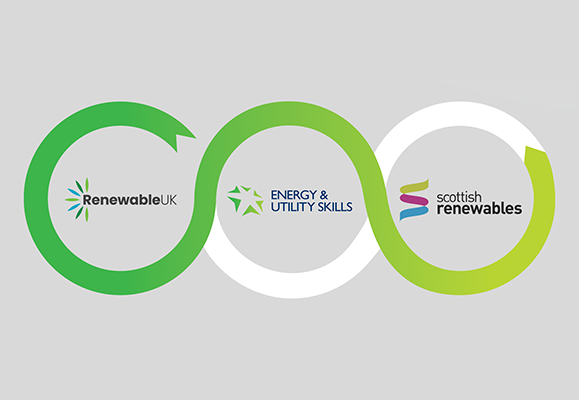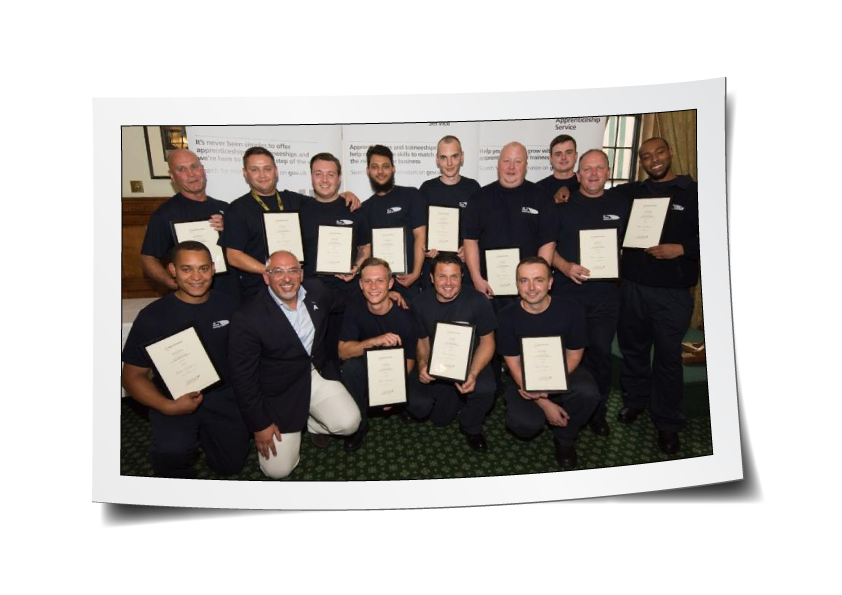May – July 2025
There have been several significant policy and regulatory developments relating to our sector over recent months. This update covers the Independent Water Commission’s final report following its comprehensive review of the water sector; publication of the UK Government’s Modern Industrial Strategy 2025 and its sector-specific Clean Energy Industries Plan; and Ofqual’s proposed regulatory framework for the new streamlined apprenticeship assessment principles.
Independent Water Commission final report published
Following publication of the interim report in early June, the Independent Water Commission published its final report on 21st July. This report identifies the importance of long-term skills planning and workforce resilience to the water industry’s future success.
The report, published by Sir John Cunliffe (21 July 2025) highlights major skills and workforce challenges faced by UK water sector, including an ageing workforce, rising vacancies, and competition for talent from other infrastructure projects. It recommends that water companies produce robust workforce and supply chain plans, and that the new regulator replacing Ofwat strengthens oversight in these areas.
Energy & Utility Skills’ ‘2024–2030 Workforce Demand Estimates’ predict that the UK energy and utilities sector must recruit over 312,000 new people by 2030. Addressing this will require a long-term skills strategy, clear accountability, regulatory certainty, and coordinated sector-wide action. Priorities include expanding high quality training, improving workforce planning, and ensuring greater regulatory certainty and strategic coherence.
Initiatives such as the UK Government and water companies’ commitment to 5,000 apprenticeships and the Water Academy Work Programme are very encouraging. We also welcome the report’s call for more collaboration between government, regulators and industry, and better use of labour market intelligence.
Energy & Utility Skills continues to work closely with employers and technical experts across the sector to design and deliver targeted solutions, with new programmes currently in the development phase or recently completed, such as the Level 4 Water Operations Manager apprenticeship.
As the Commission’s report highlights, with 23% of water engineers expected to retire within five years, strategic, industry-led workforce planning is urgent. Energy & Utility Skills is committed to implementing the report’s recommendations, supporting competency through schemes such as Products for Drinking Water (PfDW) and National Water Hygiene, which safeguard public health, ensure regulatory compliance, and maintain high water quality standards.
UK Modern Industrial Strategy
The UK’s Modern Industrial Strategy, published towards the end of June, outlines the Government’s commitment to supporting investment in eight key industrial sectors, now referred to as the IS-8. These are advanced manufacturing, creative industries, clean energy, digital technologies, professional and business services, life sciences, financial services, and defence. What this means is that, in other policy terms, it is these sectors where investment is prioritised, and growth is expected.
Accompanying the main industrial strategy publication is the Clean Energy Industries Sector Plan, whose vision for 2035 is that the UK will be a global leader in Clean Energy Industries, creating hundreds of thousands of good jobs at good wages across the country, and becoming a world-leading exporter of low-carbon products, services and innovation – which includes:
• Being the most attractive place in Europe to invest in Clean Energy Industries.
• Having grown exports in all ‘Frontier Clean Energy Industries.’
• Having driven higher domestic commercialisation of evolving clean energy technologies.
• Having secured more resilient and robust supply chains.
(The Frontier Clean Energy Industries are: wind (onshore, offshore and floating), nuclear fission, nuclear fusion, hydrogen, carbon capture utilisation and storage, and air/ground source heat pumps.)
New apprenticeship assessment model
Ofqual has outlined its proposed approach to regulating ‘new style’ apprenticeship assessments, which will expand the role of training providers and grant awarding organisations greater control over assessment methods.
On 20 June, Ofqual launched a consultation, ‘Regulatory Framework for Apprenticeship Assessment’, setting out a proposed regulatory approach for these more streamlined assessments. This follows the government’s revised apprenticeship assessment principles announced earlier this year.
The implementation date for the new assessment model has not yet been confirmed. A further consultation will take place after the current one, while Skills England reviews assessment plans. In the interim, the awarding sector anticipates a substantial volume of new guidance that it will be required to adopt.
Ofqual has proposed that, once the new assessment model and regulatory approach are ready, they should apply to new apprentices only, with current apprentices continuing under the existing end point assessment framework. They acknowledge that this approach may result in training providers managing apprentices on two different assessment models concurrently.
Energy & Utility Skills has engaged with its members to gather feedback on the proposed changes to apprenticeship assessment, which will inform ongoing dialogue with Skills England.



